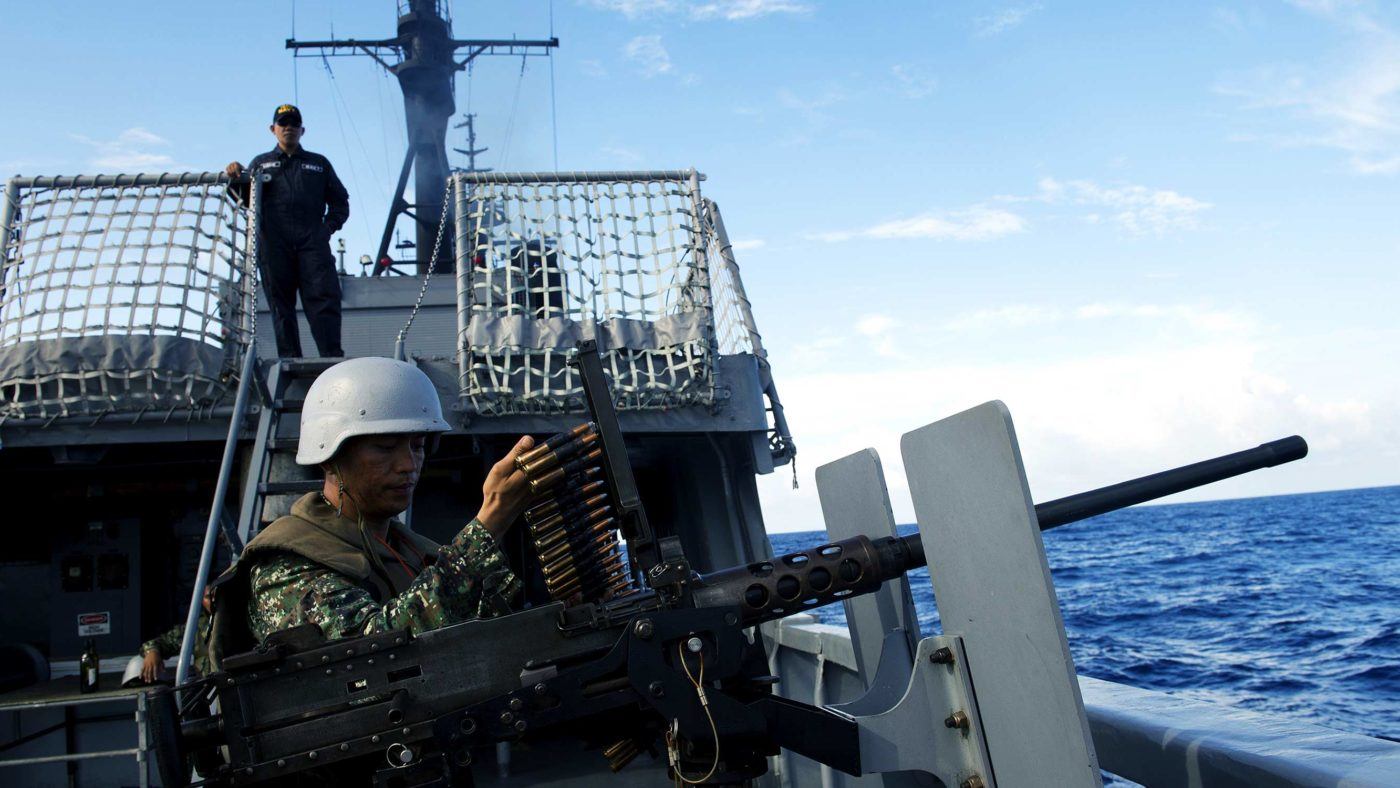When you read about an international legal case involving territorial disputes, artificial islands, and missile launch sites, the catchphrase “it’s the economy, stupid” might not be the first thing to come to mind. But in reality, this phrase highlights why the South China Sea is one of the most dangerous security flashpoints in the world today, and why supporters of free markets and free trade should take it seriously.
On July 12th, an international tribunal issued a legal ruling dismissing claims by the Chinese government in its maritime territorial dispute with the Philippines—one of several disputes between China and its neighbors in the South China Sea. The Chinese boycotted the tribunal altogether and quickly rejected its ruling. Economic interests are at the heart of China’s stake in these territorial disputes, the intervention of the United States, and the risk that dangerous precedents in the South China Sea pose for global trade as a whole.
Behind plenty of rhetoric about historical claims and sovereign rights in the region lie Chinese concerns about economic security. In addition to other goods, it is estimated that roughly 80 percent of China’s oil imports pass through the South China Sea and its narrow straights, which may also hold significant undersea oil reserves itself. As the world’s largest energy consumer and a net importer of hydrocarbon energy resources, that makes the sea a crucial lifeline for China’s economy. A blockade by another country’s navy could strangle China’s economy and military, provoking political upheaval. It should not come as a surprise that the Chinese government has ramped up naval activity and constructed military facilities in disputed territory in order to maximize control over access to the area.
The substantial trade flows through the South China Sea also shine a light on the U.S. government’s reaction to China’s moves. The Asia-Pacific region, which accounts for over 60 percent of U.S. exports, is the center of gravity for U.S. trade and was the focus of U.S.-led negotiations to create the massive Trans-Pacific Partnership regional trade deal.
Militarization and instability in the South China Sea threaten the safety of shipping lanes that are crucial to some of America’s most important trade partners and regional allies. This is a major motive for U.S. military and diplomatic intervention to block China from consolidating control over the area. The United States, China, and other regional countries all have a large stake in the security of commerce in the South China Sea, but they do not fully trust each other to keep peaceful shipping traffic secure in the event of a conflict. This creates a military tinderbox that is just waiting for a spark.
The importance of free trade makes the South China Sea much more than just another regional spat. With no “world police” to turn to, international trade depends on businesses and governments trusting each other enough to make the many risks of international business tolerable. If peaceful resolution of disputes, freedom of navigation, and voluntary adherence to international agreements break down in an area that involves trillions of dollars in global trade and the basic resource needs of the world’s second and third largest economies, the whole system begins to look a lot less stable.
This lack of trust creates a vicious cycle. The less people trust the reliability of the institutions that make free trade work, the more they begin to plan around that failure and to consider skirting those rules themselves, further straining the system.
The last several decades have seen an explosion of global trade and economic liberalization, along with the biggest drop in world poverty in history. That progress has relied on nations backing freedom of navigation, peaceful dispute resolution, and the rules-based institutions that support them. It would be a tragedy if that progress began to backslide because of a collapse of those norms in one of the world’s most important economic hotspots. It is no exaggeration to say that the future of free trade and the global economy depends on the United States, China, and the nations of Southeast Asia finding a way to dial back the tension and build mutual trust in the South China Sea before it is too late.


